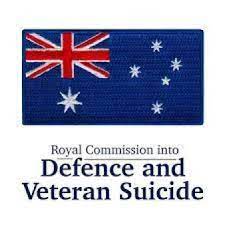
Defence Royal Commission Receives Nearly 6,000 Submissions on Veteran Suicide
The Royal Commission into Defence and Veteran Suicide has received a substantial influx of input, with close to 6,000 submissions from current and former Defence members, their families, and experts. This surge in contributions underscores the urgent need to address the critical issue of suicide within the defence community.
Over the period from 1997 to 2020, there were at least 1,600 reported deaths by suicide in the defence community. This figure is shockingly 20 times higher than the number of military personnel killed in active duty during the same timeframe. This alarming statistic propelled the establishment of the Royal Commission in 2021 to thoroughly investigate systemic failures within the system. The Commission is expected to present its final report, replete with recommendations, to the federal government in the coming year.
As the submission deadline closed on a recent Friday, a staggering total of 5,889 submissions had been received, with a commitment to process and analyse any additional submissions that may arrive via postal mail. In early 2023, the Commission is set to conduct both private and public hearings in Sydney as it delves further into this critical matter.
Ultimately, the Commission’s work will be transitioned to a specialized body, with a report outlining this transition expected to be released soon. Chair Nick Kaldas expressed his gratitude to the thousands of individuals who courageously shared their personal experiences, acknowledging the pivotal role these accounts play in comprehending the multifaceted issue at hand.
“Your stories are integral to our understanding of this complex problem and will aid us in formulating a comprehensive final report,” Kaldas commented. “Our goal is to honour your narratives by providing government recommendations that result in tangible, meaningful, and lasting change.”
This recent surge of submissions follows Chair Kaldas’s previous statement, made a month prior, in which he highlighted the Commission’s struggle to obtain vital information from Defence and other governmental bodies. He noted that evidence uncovered during the Commission’s investigation suggested that there had been more talk than concrete action in addressing the issue.
Kaldas emphasized the need for long-lasting and substantial reforms aimed at improving the mental health and overall well-being of defence personnel. While acknowledging that predicting suicide is a complex challenge, he underlined that the approach to tackling this problem should begin with the perspective that it is preventable.
He further emphasized that individuals contemplating suicide often have prior contact with an agency or organization, making it crucial for these entities to be alert to the risks and to offer appropriate support and compassion to those who may have experienced trauma and vulnerability.
In conclusion, the Royal Commission into Defence and Veteran Suicide is making significant strides in addressing this pressing issue, with a firm commitment to lasting change and improved mental health outcomes for defence personnel.



